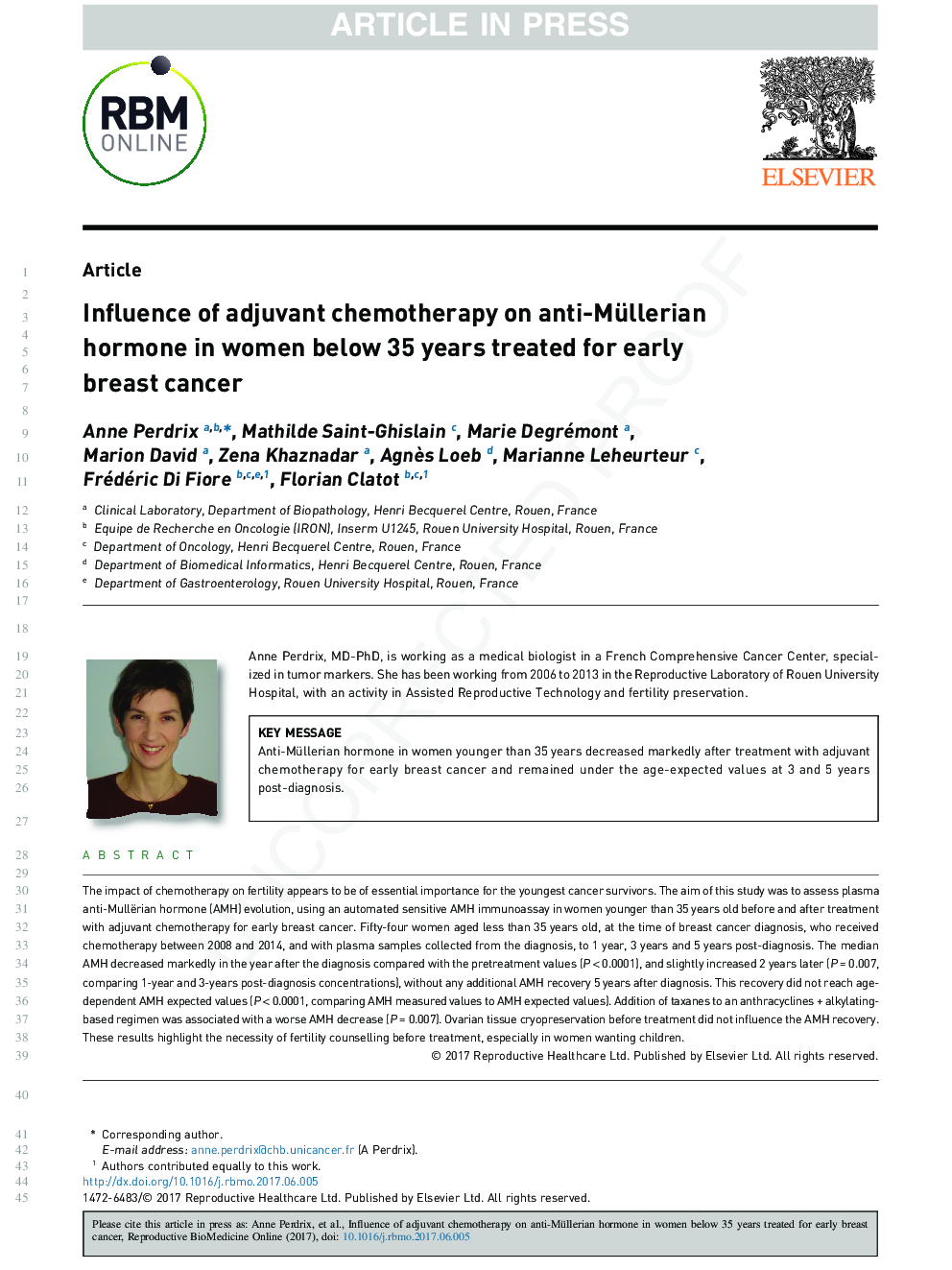| Article ID | Journal | Published Year | Pages | File Type |
|---|---|---|---|---|
| 5696589 | Reproductive BioMedicine Online | 2017 | 7 Pages |
Abstract
The impact of chemotherapy on fertility appears to be of essential importance for the youngest cancer survivors. The aim of this study was to assess plasma anti-Mullërian hormone (AMH) evolution, using an automated sensitive AMH immunoassay in women younger than 35 years old before and after treatment with adjuvant chemotherapy for early breast cancer. We selected 54 women aged less than 35 years old, at the time of breast cancer diagnosis, who received chemotherapy between 2008 and 2014, and with plasma samples collected from the diagnosis, to 1 year, 3 years and 5 years post-diagnosis. The median AMH decreased markedly in the year after the diagnosis compared with the pretreatment values (P < 0.0001), and slightly increased 2 years later (P = 0.007, comparing 1-year and 3-years post-diagnosis concentrations), without any additional AMH recovery 5 years after diagnosis. This recovery did not reach age-dependent AMH expected values (P < 0.0001, comparing AMH measured values to AMH expected values). Addition of taxanes to an anthracyclines + alkylating-based regimen was associated with a worse AMH decrease (P = 0.007). Ovarian tissue cryopreservation before treatment did not influence the AMH recovery. These results highlight the necessity of fertility counselling before treatment, especially in women wanting children.
Related Topics
Health Sciences
Medicine and Dentistry
Obstetrics, Gynecology and Women's Health
Authors
Anne Perdrix, Mathilde Saint-Ghislain, Marie Degremont, Marion David, Zena Khaznadar, Agnès Loeb, Marianne Leheurteur, Frédéric Di Fiore, Florian Clatot,
